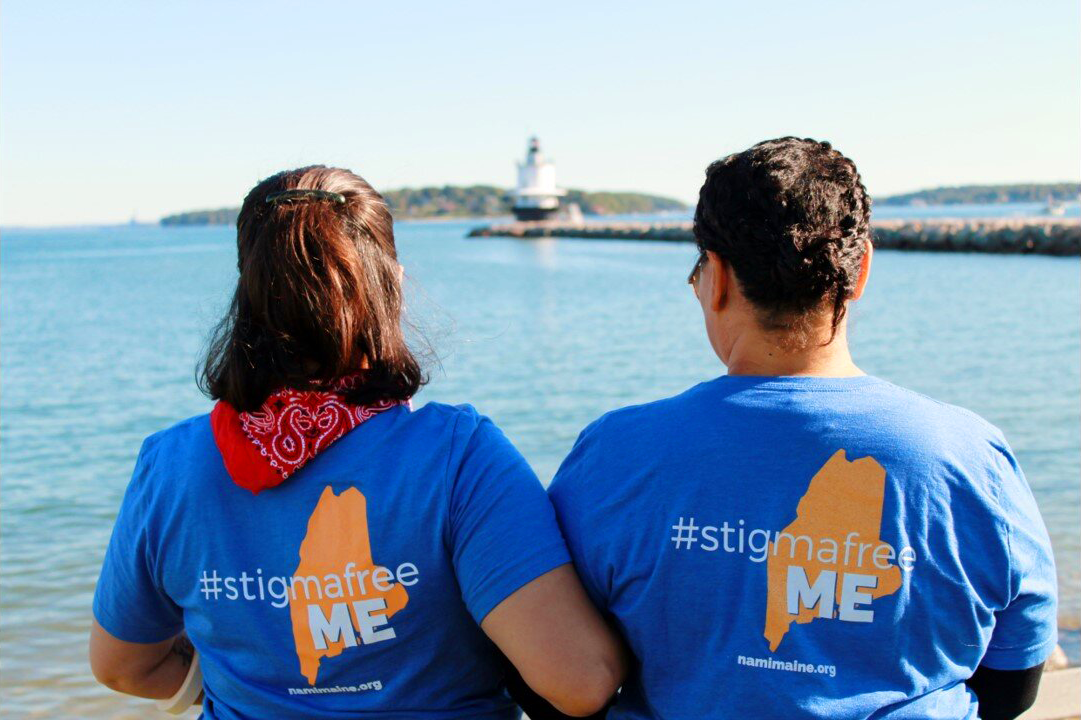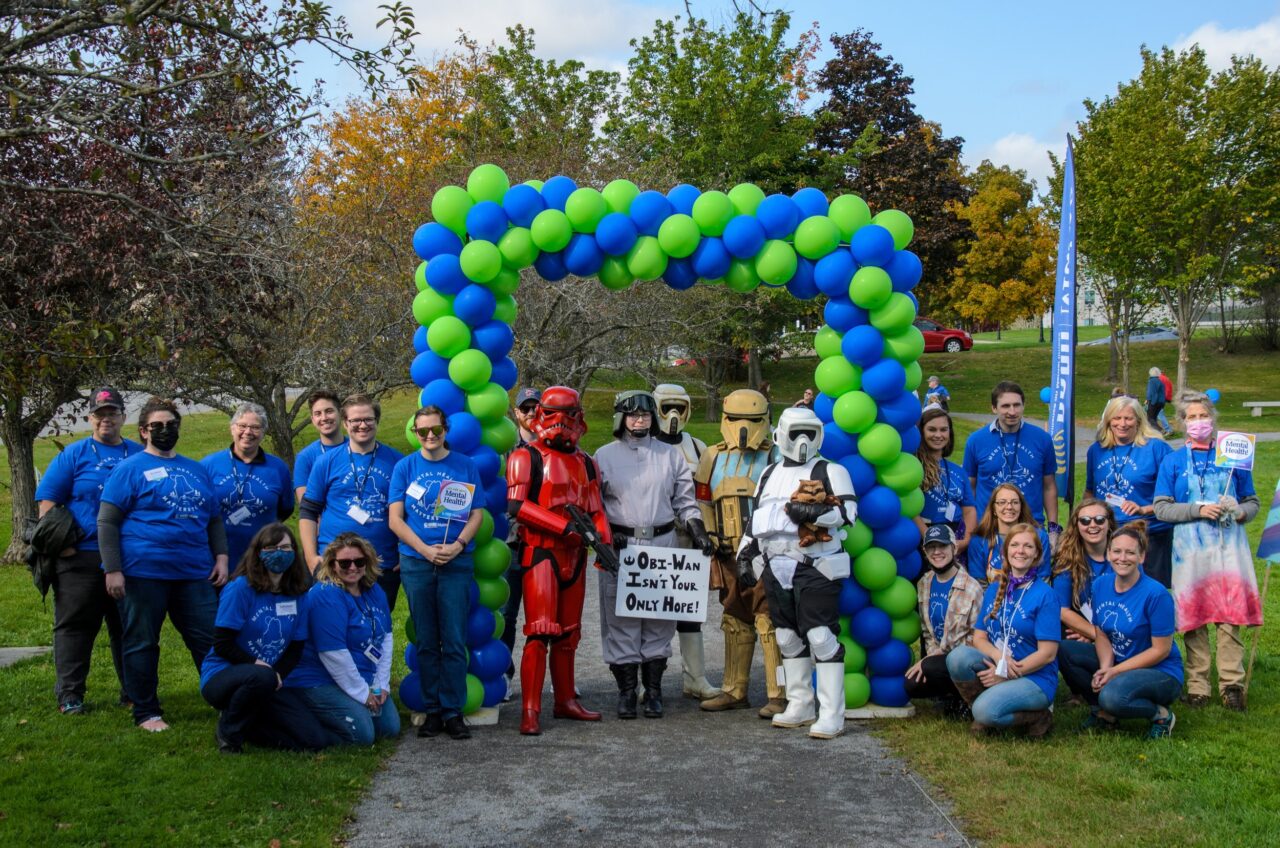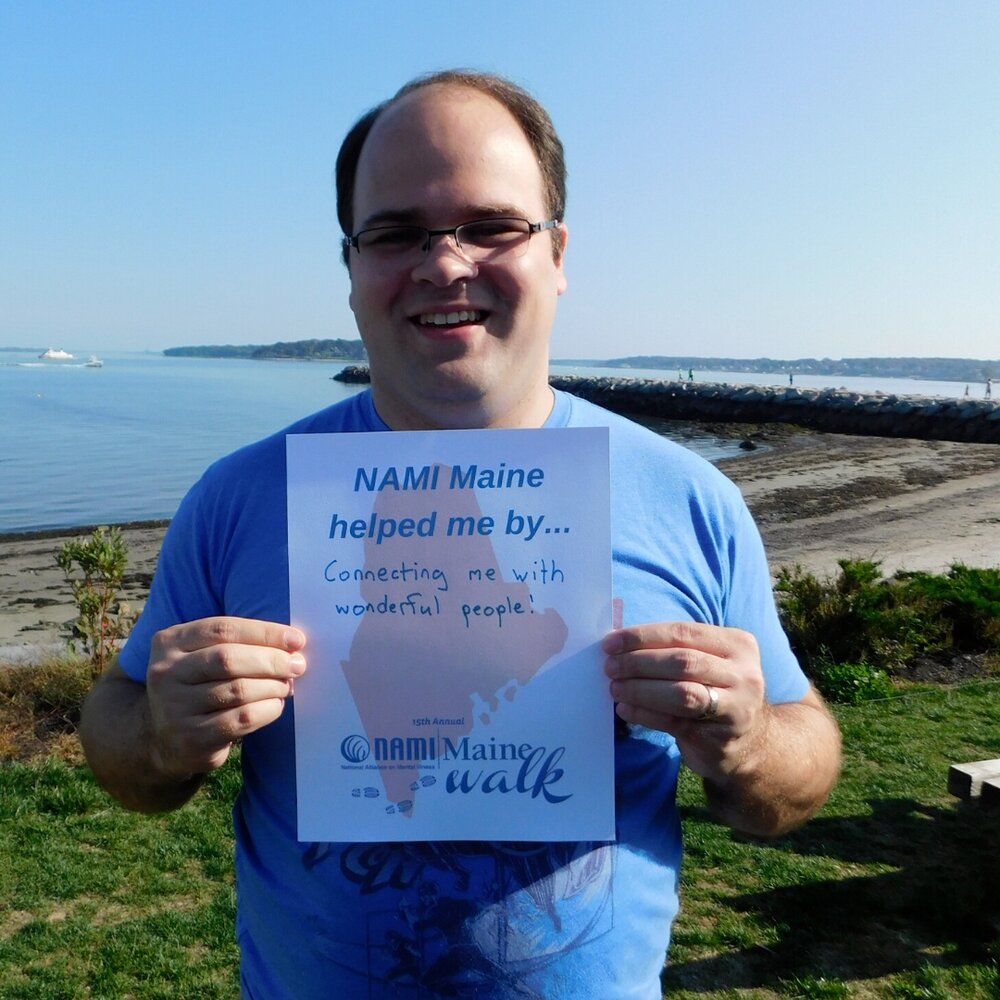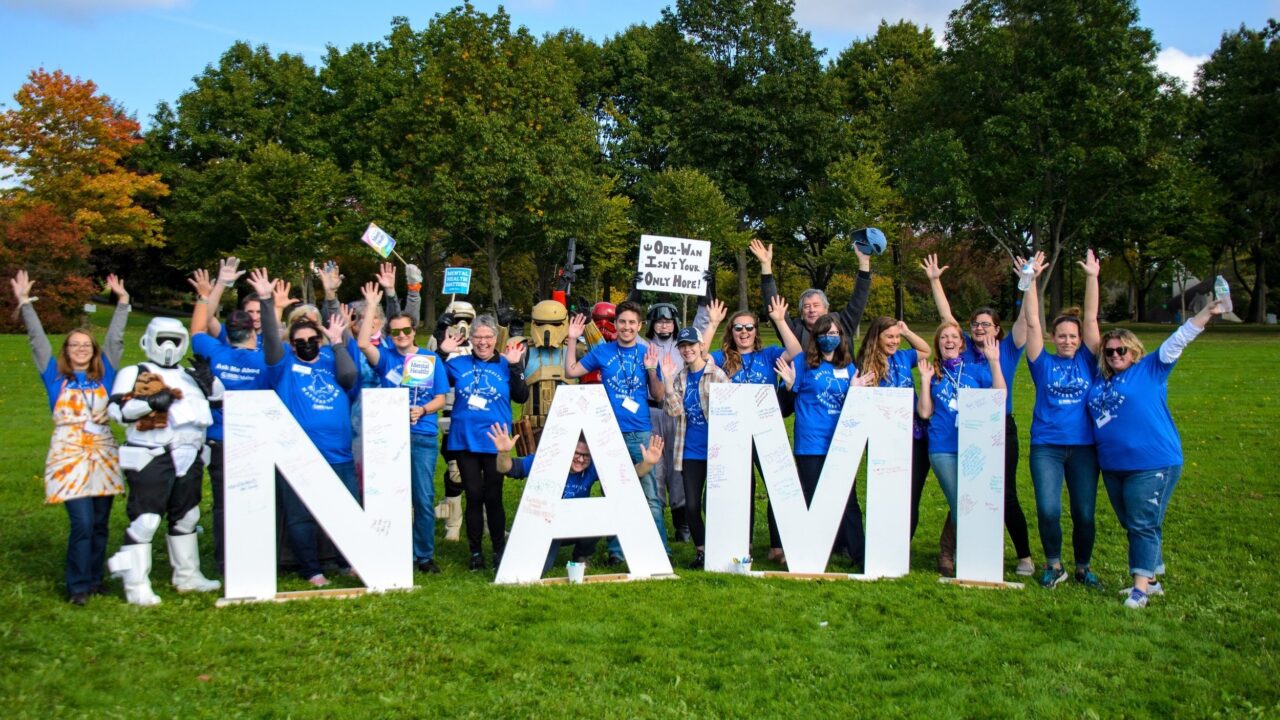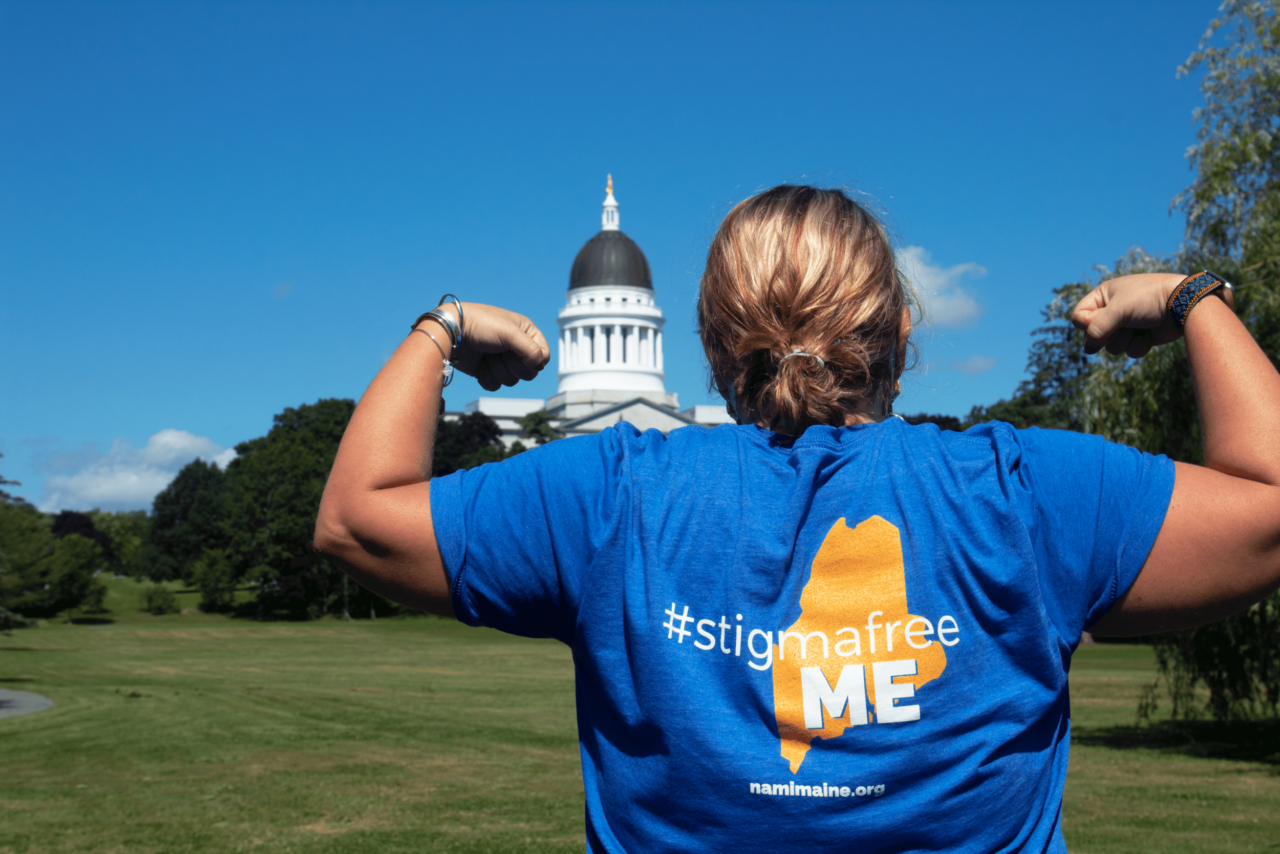NAMI Maine is Here for You!
Article Written By: Lisa Joy White, MSW, MA, CT
Holidays – the time when so many people are smiling, singing, wrapping gifts, and rushing around to family gatherings. Holidays may have once been a time of great excitement for you, but if you have suffered a significant or traumatic loss through a death of a loved one, whether recently or years ago, holidays can also bring great pain and loneliness. You may wonder: How will I ever survive this season of festivities? There is no magical fix to eliminate the pain of your grief.
However, other survivors have found it beneficial to plan and prepare. By considering a few practical suggestions, you may also find that you are able to get through this season with a little less hurt and emptiness than trying to just “wing it” or avoiding it altogether. You might even find that you are able to smile and enjoy a few special moments yourself. And that is OK. If this is your first holiday season without your loved one, it will most likely be quite difficult, but you will get through it. You are already surviving a tremendous loss and have made it this far. You will survive this as well.
Accept your limitations. The intensity of grief around the holidays may increase many physical and cognitive expressions of grief. Even if you found you were finally starting to sleep through the night, make it through the day without a couple naps, or be able to complete several tasks without feeling completely confused and fatigued, the holiday season may renew or increase these types of grief reactions. Understand that this is normal, be kind to yourself, and adjust your days and plans accordingly.
Communicate with family and friends. If there are particular people you will be around during the holiday season, acknowledge the loss and talk to them about the difficulties you (and they) are facing ahead. Allow each family member/friend to share their own personal needs and wishes for the weeks ahead. Consider what you can and cannot handle and make a plan as a family.

Do what is right for you and your family. Do you find that friends and family are making a lot of suggestions about what you should do? While they most likely do this with love and good intentions, the bottom line is that no one knows what is best for you except you. Take time to consider what you do and do not want to participate in—either individually or as a family. Not ready for a tree and all the lights? That’s OK. Do what is right for you at this moment. And please do not be afraid to voice your own opinions and needs to well-meaning friends and family. When someone insists that you should do something or just have to attend some event, it is OK to respond by simply stating, “Thank you. I will consider that.”
Plan ahead to shop for gifts and/or supplies. Being in crowds of shoppers can add unnecessary stress to a stress load that already feels quite heavy. If you need to shop for gifts and/or supplies, try to do so well in advance or consider shopping online. Even groceries may be picked up curbside or delivered. What options are available to you?

Surround yourself with people who are supportive of your grief needs. Many people are uncomfortable with the pain of grief that others are experiencing. As a result, they may avoid you or may constantly try to “cheer you up”. Grief is real and it is difficult enough to cope with when you have supportive friends and family. Trying to hide away your grief for the sake of others takes an amount of energy you most likely do not have. Identify the friends and family who understand that the holiday season may intensify your sense of loss and who are willing to talk openly about your thoughts and feelings as you wish.
Acknowledge your loved one. Don’t be afraid to mention your loved one’s name or share stories about past holidays with your loved one. If you can speak openly, others will begin to feel comfortable doing so as well. Your loved one is no longer with you physically, but the love and memories are still there. Honor them.
If your loved one died by suicide, you may be feeling the stigma, guilt, or shame that society (and perhaps yourself) often places on such a death. Remember this: Your loved one is not defined by the way they died; they are defined by the way they lived and your relationship with them.
Some ways you and your family can acknowledge your loved one and their absence:
- Moment of Silence
- SpecialToast
- Empty Chair at theTable
- Photo Albums Placed in Prominent Locations
Do something special to honor your loved one.
Was there something special that you and your loved one did during this holiday season? Was there something completely unrelated to the holidays that you and your loved one shared? What can you do – by yourself or with others – to celebrate and to honor your loved one’s life and your relationship?
Meet a new friend.
Many of us find ourselves alone during the holidays after we have experienced a death of a loved one. The feeling of isolation can compound the loss we already feel. Consider making a new friend by inviting a neighbor, who is also alone, to coffee or lunch. If you have met someone in a grief support group, you may find that supporting one another during the holidays gives you both a lift enough to make the holidays a bit more bearable.
Create a new tradition.
Trying to keep the same traditions that you had with your loved one can be very difficult and painful, especially the first year or two after the death. Some survivors find that changing the previous holiday events and traditions can make the holiday season a bit less painful in the absence of their loved ones.

You might decide to do nothing, and that is OK. If you feel the need to do something because of children or other reasons, consider making adaptations to the old traditions or try out a new tradition this year. You don’t have to do it again next year, unless you want to.
Perhaps you always hosted a holiday dinner. This year, you probably don’t have the energy or wherewithal to do it all yourself. Ask someone else to host or consider having guests each bring a dish. Also consider asking someone to help set up and clean up. Not up for going all out on decorations? Nothing says you have to decorate at all. If there are children and you feel obligated to decorate, choose a couple of key decorations that the children can help with.
You are in control. Consider:
- What is important to you about the season?
- What do you value?
- What do you find comforting?
Have a plan of escape.
If and when you feel ready to attend a holiday event or gathering, it may be best to make a plan of escape in case you feel the need to leave. One option is to drive yourself to the event. Perhaps a better option is to talk to a trusted friend who can design an escape plan with you. Your friend can drive you and can watch for a “secret sign” indicating that you need to leave, no questions asked. At a time when you probably feel as though you have lost all control, it is important for you to have some control over your attendance at any event. You might find that you make it to the door and have to turn around. That’s OK. You might find that you are able to stay thirty minutes or so, and that is OK too. You might also find yourself having a few moments of laughter. Just be sure you make the decision whether to attend and when to leave.
Give yourself permission to be happy.
This may sound silly to those who haven’t experienced grief. Sometimes we can feel guilty for smiling or laughing or enjoying a moment simply because our loved one is not able to be here to enjoy the moment with us. While it is important to acknowledge and experience the thoughts and feelings that come with grief, it is equally important to allow yourself time to enjoy special moments and events. You might want to consider watching a funny movie or comedy show. Laughter can truly be a wonderful medicine for the soul!
The holiday season may be difficult, but it can also be a bit more manageable if you plan ahead and make some adjustments. Many survivors find that navigating the holidays can take a bit of “trial and error” for the first few holiday seasons. If you find something doesn’t work well for you and your family this year, consider doing something different next year.
Please remember that grief is a normal and healthy reaction to the death of your loved one. Allow yourself time and space to experience the pain of grief, distract yourself temporarily from the pain of grief, and adapt to a life without the physical presence of your loved one as you mourn.
Mourning a significant loss is a process—a journey that is unique to you alone—and adjustments to building a now different life without your loved one takes time. And please remember that you do not need to walk this journey alone. Accept support from others, whether it be family, friends, or community support.

Lisa Joy White, MSW, MA, CT
Suicide Loss & Grief Support Convener
griefsupport@namimaine.org
(800) 464-5767 x 2317




